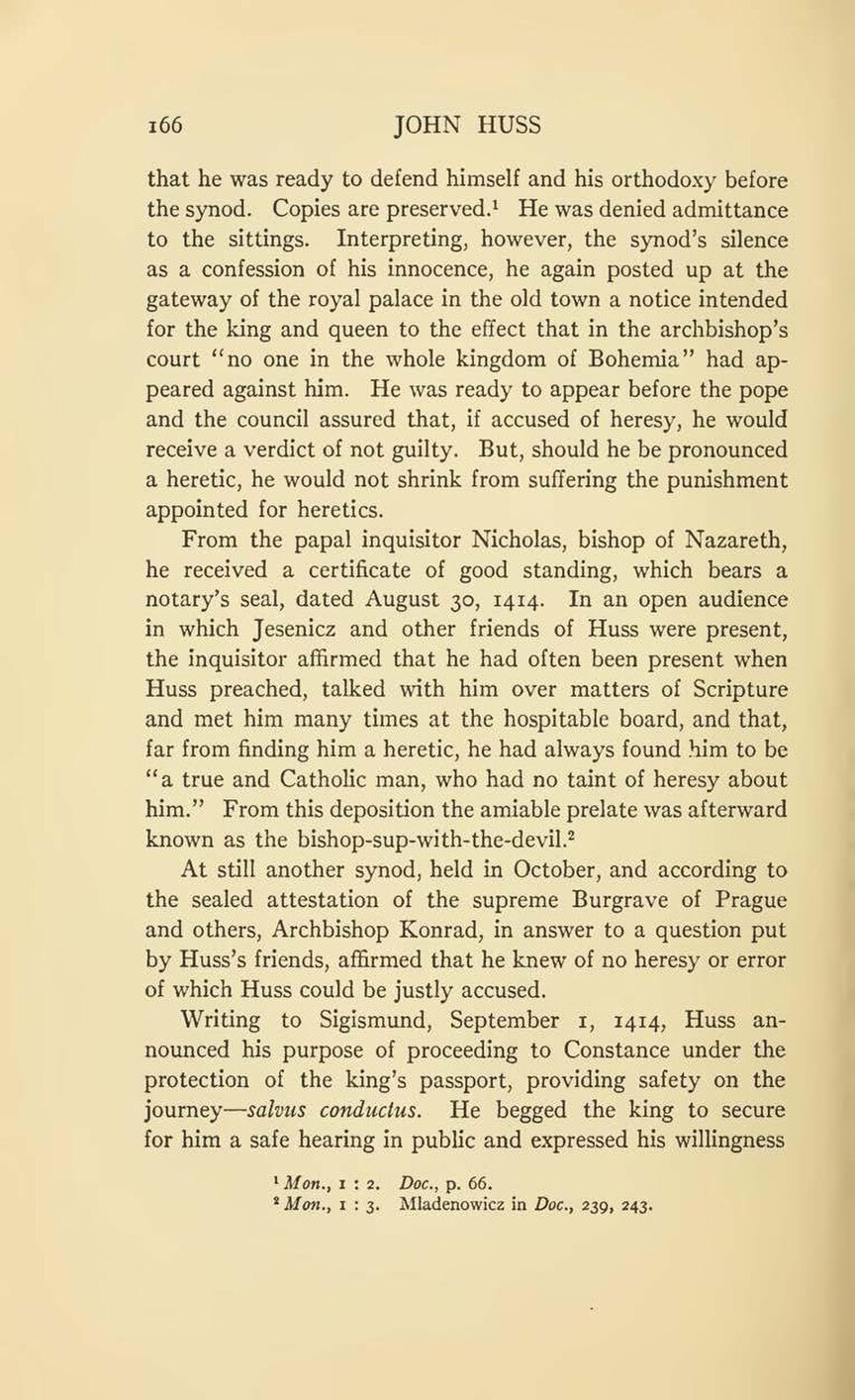that he was ready to defend himself and his orthodoxy before the synod. Copies are preserved.[1] He was denied admittance to the sittings. Interpreting, however, the synod’s silence as a confession of his innocence, he again posted up at the gateway of the royal palace in the old town a notice intended for the king and queen to the effect that in the archbishop’s court “no one in the whole kingdom of Bohemia” had appeared against him. He was ready to appear before the pope and the council assured that, if accused of heresy, he would receive a verdict of not guilty. But, should he be pronounced a heretic, he would not shrink from suffering the punishment appointed for heretics.
From the papal inquisitor Nicholas, bishop of Nazareth, he received a certificate of good standing, which bears a notary’s seal, dated August 30, 1414. In an open audience in which Jesenicz and other friends of Huss were present, the inquisitor affirmed that he had often been present when Huss preached, talked with him over matters of Scripture and met him many times at the hospitable board, and that, far from finding him a heretic, he had always found him to be “a true and Catholic man, who had no taint of heresy about him.” From this deposition the amiable prelate was afterward known as the bishop-sup-with-the-devil.[2]
At still another synod, held in October, and according to the sealed attestation of the supreme Burgrave of Prague and others. Archbishop Konrad, in answer to a question put by Huss’s friends, affirmed that he knew of no heresy or error of which Huss could be justly accused.
Writing to Sigismund, September 1, 1414, Huss announced his purpose of proceeding to Constance under the protection of the king’s passport, providing safety on the journey—salvus conductus. He begged the king to secure for him a safe hearing in public and expressed his willingness
